Iran expert urges Azerbaijan to help resolve regional issues
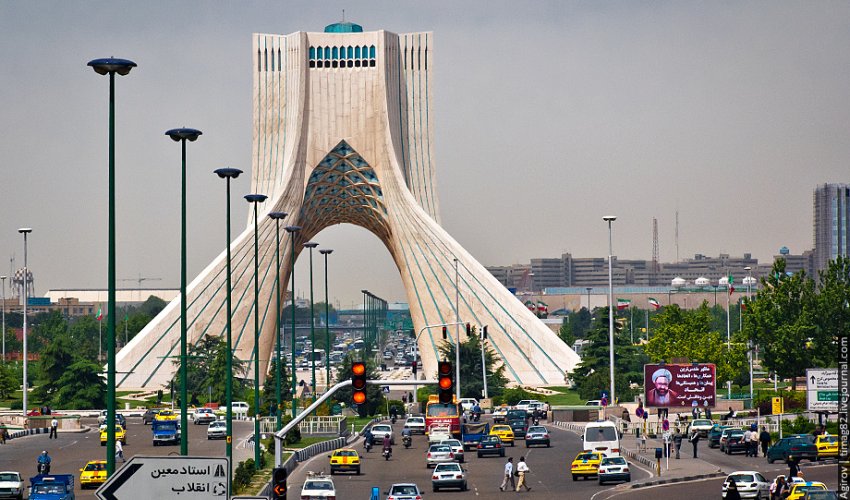
Promoting cooperation capability to attain common economic and strategic aims can be considered the main strategic objective of all countries. Since 1991, the Caspian Sea littoral states have failed to coordinate the necessary infrastructure to reach an agreement on how to play their roles and exploit resources. Such a circumstance prepares the ground for players from outside the region to play a role.
The search for a role to be played by Salafi and takfiri [the ideas embraced by those who hardline Muslims sects that hold others Muslim to be infidels] groups can be a reflection of the lack of cooperative trends of those players who are entangled in a power vacuum. On the other hand, some signs of the increasing expectations are observable in the attitude of the countries that are going through regional and international transitional trends. The regional, and Persian Gulf, Caspian Sea, Central Asian, Caucasian, and the Middle Eastern states have encountered the signs of the increasing expectations. Actions by interfering regional countries such as Turkey, Saudi Arabia, as well as the Zionist regime in the region have paved the way for increasing the crises.
Holding the joint meeting of Iran, Russia, and Azerbaijan can be seen as a sign of anorganised attempt to deal with regional threats; threats that are gradually increasing. The issue of fundamentalism can be a sign of the threats that impact social security and the strategic necessities of the regional countries. Improving regional countries' ties can create an opportunity to control trouble-making actors.
Regional cooperation can also promote bilateral relations. Iran and Azerbaijan have had calm relations in the recent years. Improved relations between Iran and Russia in a time span of 2014-16 can enhance the Iran-Azerbaijan ties. Therefore, improving bilateral and multilateral relations between [regional] countries can be accounted as Iran's most significant concern in the regional circumstances.
Such objectives can bematerialised through establishing a trend emanating from a "securitized society" which is formed to deal with the possible threats. The existing trends in the regional environment are reflecting some signs of the threats. Saudi Arabia's identity threats are the main axis of regional crises. The requirements for dealing with the threats necessitate providing socio-diplomatic infrastructures for dealing with the turbulent groups.
The Republic of Azerbaijan can take new steps in the multilateral cooperation atmosphere for improving regional cooperation. The Zionist- and Arab-oriented groups inside Azerbaijan are the main opponents of resuming the Iran-Azerbaijan relations. The power structure of Azerbaijan creates the possibility for a persistently hostile, aggressive attitude against Iran. In such a situation, it is necessary to pave the way for economic, military, security, and cultural cooperation between Iran and the "Trilateral Cooperation Organisation" member states.
Since the social crises bear a transmissible nature, the regional cooperation trend can normally transfer its impacts to its surrounding environment as well as the regional atmosphere. Naturally, a securitised society can end up withfavourable and influential results provided that the present atmosphere can be turned into a more cooperative situation. The regional environment bears the potential for strengthening the institutions such as the "Economic Cooperation Organisation" and "The Caspian Sea Littoral States Organization." Expanding the existing cooperation to the other regional states can enhance managing regional crises. Any measures taken to eliminate the threats can create necessary preparations for a secure community. Strategic
multi-lateralism promotes the infrastructure for secure society.
www.ann.az
The search for a role to be played by Salafi and takfiri [the ideas embraced by those who hardline Muslims sects that hold others Muslim to be infidels] groups can be a reflection of the lack of cooperative trends of those players who are entangled in a power vacuum. On the other hand, some signs of the increasing expectations are observable in the attitude of the countries that are going through regional and international transitional trends. The regional, and Persian Gulf, Caspian Sea, Central Asian, Caucasian, and the Middle Eastern states have encountered the signs of the increasing expectations. Actions by interfering regional countries such as Turkey, Saudi Arabia, as well as the Zionist regime in the region have paved the way for increasing the crises.
Holding the joint meeting of Iran, Russia, and Azerbaijan can be seen as a sign of an
Regional cooperation can also promote bilateral relations. Iran and Azerbaijan have had calm relations in the recent years. Improved relations between Iran and Russia in a time span of 2014-16 can enhance the Iran-Azerbaijan ties. Therefore, improving bilateral and multilateral relations between [regional] countries can be accounted as Iran's most significant concern in the regional circumstances.
Such objectives can be
The Republic of Azerbaijan can take new steps in the multilateral cooperation atmosphere for improving regional cooperation. The Zionist- and Arab-oriented groups inside Azerbaijan are the main opponents of resuming the Iran-Azerbaijan relations. The power structure of Azerbaijan creates the possibility for a persistently hostile, aggressive attitude against Iran. In such a situation, it is necessary to pave the way for economic, military, security, and cultural cooperation between Iran and the "Trilateral Cooperation Organisation" member states.
Since the social crises bear a transmissible nature, the regional cooperation trend can normally transfer its impacts to its surrounding environment as well as the regional atmosphere. Naturally, a securitised society can end up with
www.ann.az
Similar news
Similar news

























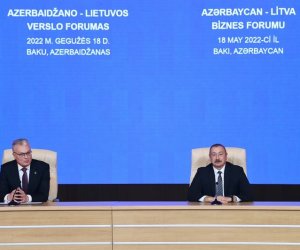
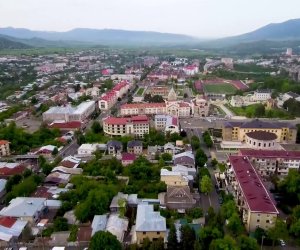

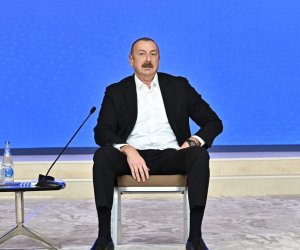

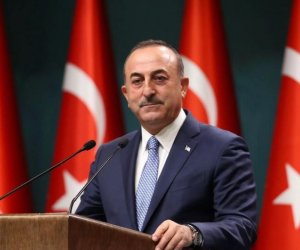





 Photo
Photo 



 Video
Video 

